Eggplant is one of the most common tropical vegetables widely grown worldwide. Several Eggplant varieties are grown worldwide according to their proper climate conditions and soil type. All these cultivars are different in their shape, size, and taste. Let’s check out more information about soil preparation for Eggplant/Brinjal.
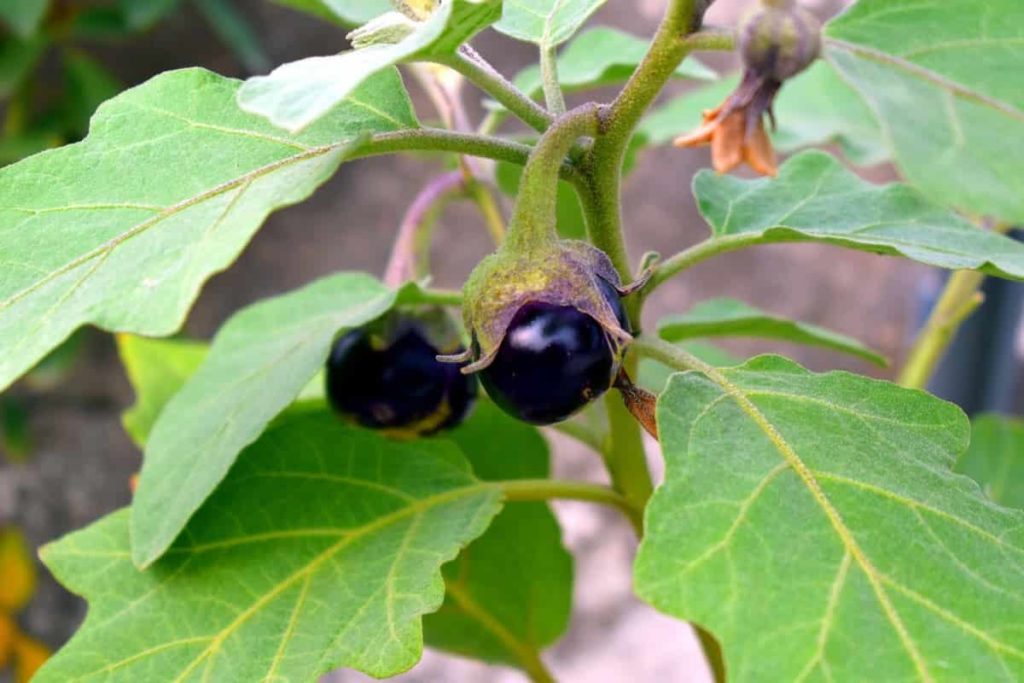
Eggplant can be grown on different soils and can grow on almost all kinds of soil. Since it is a versatile crop that adapts to different weather conditions and soils. However, well-drained soil rich in humus is suited to grow Eggplant. Eggplant thrives at its best on the ground with excellent soil fertility and production as it is a long-term vegetable crop; it depends directly on soil type, fertility, and productivity. So, for commercial Eggplant cultivation, going for a soil test is a smart move.
It helps in detecting soil fertility and productivity along with soil deficiency. Soil can rarely be a restrictive factor when growing Eggplant. However, the plant thrives best in the middle and goes up to sandy soil with proper water and drainage. It usually suffers more drought than a Tomato plant because of its deep roots. On the other hand, Eggplant doesn’t like soggy soil. There are cases in which growers could grow Eggplant and get an average yield in soil with pH 8.5, but with special handling.
Eggplant is a hardy crop, so it can be grown on different soil types. Since it is a long-term crop, it requires well-drained fertile sandy loam soil, which is best suited for its cultivation and produces well. Because the light soil of the early crop is good, and the slit loam is suitable for high yielding. Eggplant also grows well in the container where you have more control over soil fertility. Plan to fertilize plants about once a month during the season to increase Eggplant production. As plants begin to grow, side dresses with a balanced fertilizer.
In case you missed it: Best Fertilizer for Eggplant: Homemade, Liquid, Organic, Compost Manure, NPK, and Schedule
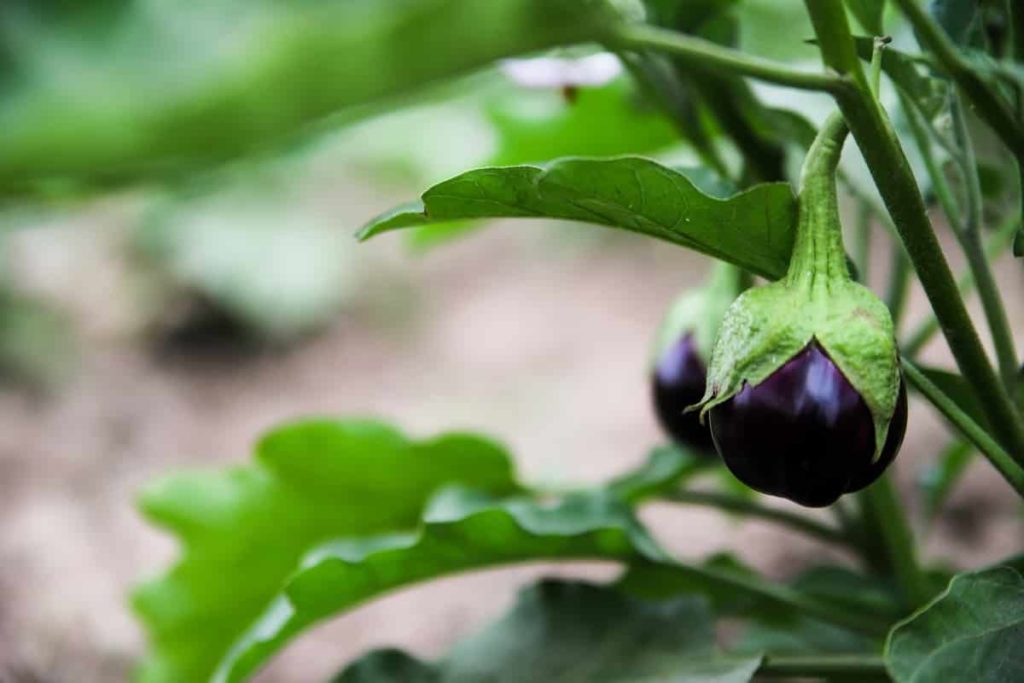
Soil preparation for Eggplant/Brinjal
Soil pH for Eggplant
Eggplants grow best in sandy loam soil, which is neutral and slightly acidic in pH. They need soil rich in nutrients, can contain plenty of moisture, and drain well simultaneously. You should add cow dung manure or compost to the soil to improve water retention. Eggplant needs well-drained, fertile, sandy loam soil with a pH between 5.5 and 7.2.
Eggplant prefers acidic soil or on a low-pH side. A test kit determines the pH level of the soil. If it is more than 6.5, add about 453 grams of sulfur per 100 square feet for each point you need to reduce your pH. If the soil test kit registers a pH below 5.5, use 2.2 kg of ground limestone per 100 square feet for each point you need to increase your soil pH.
Preparation of soil for growing Eggplant in pots
Well-draining soil is essential for the proper growth of Eggplant roots. A strong root system will produce a strong and healthy shoot and get a better crop. Most standard potting soil works fine, but those designed to keep more moisture may need to mix a little mulch to promote better drainage. Adding mulch or straw over the soil will help prolong the time between water.
A simple potting mix formula should include 40% garden soil, 40% cocopeat or peat moss, and 20% compost such as rotten cow dung or vermicompost. If you have, you can optionally add other things like perlite, neem cake powder, etc. In addition to strengthening the root system and affecting lots of flowers and fruits, you can add a handful of bone meal powder, which is very cheap and readily available.
You can also mix organic rock phosphate powder with the potting mix. These organic fertilizers are essential slow-release sources of phosphorus that strengthen roots resulting in healthy plants and better yields by boosting the plant’s immune system or resisting pests and diseases.
Preparation of soil for growing Eggplant on grounds
Soil testing identifies the number of nutrients in the soil, the level of pH (or acidity and alkalinity), and the percentage of organic matter. The soil testing report will provide recommendations to improve the garden bed before planting Eggplant and describe the fertilizer type and exact quantity to give to your plants during the season. Overfertilizing can cause plants to focus more on growing leaves and trunks rather than flowers and fruits.
The flush of new growth due to high fertility will make plants more attractive to insects like Aphids. Mix rich compost or well-rotted manure in the soil a few weeks before planting Eggplant. Organic matter will gradually decompose in the soil, providing a steady flow of nutrients during the growing season. Organic matter will also enhance soil water storage capacity, improve drainage and feed beneficial members of the soil ecosystem.
In case you missed it: Eggplant Companion Plants, Planting Guide
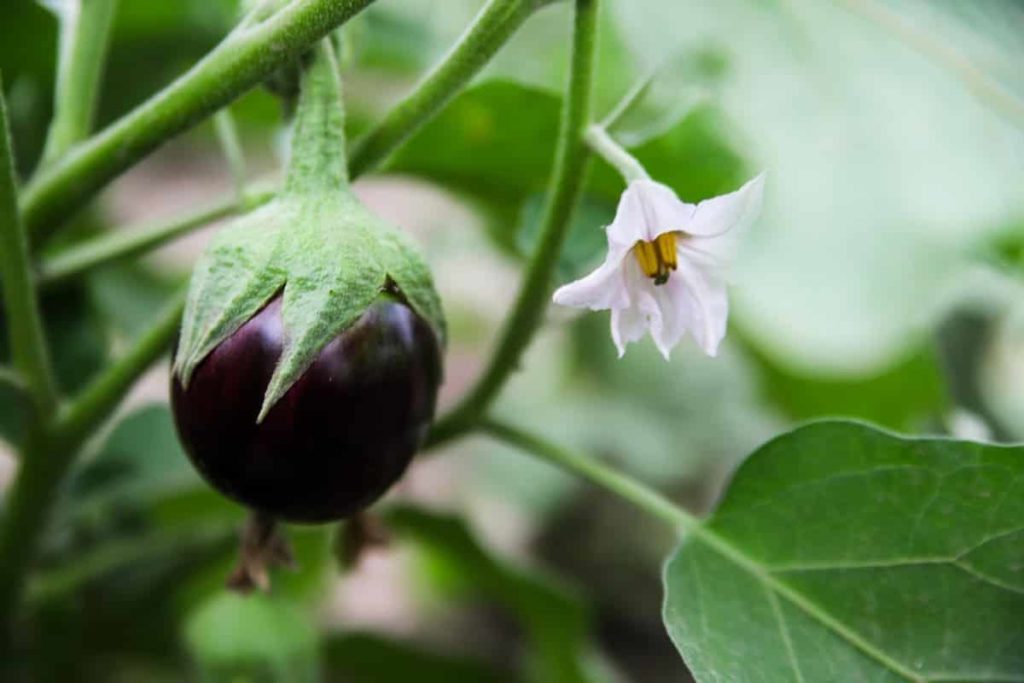
How to grow Eggplant in poor soil
Eggplant can be grown in all kinds of soil varying from light sandy to heavy clay. Light soil is suitable for early production, while clay loam and slit-loam for higher yield. The common and high-status loam and sandy soil are best suited for Eggplant cultivation. Soil should be fertile and drained well. Eggplant is a very tough crop, and soil can be grown even in adverse conditions like high pH; Eggplant has excellent adaptability.
Land preparation for Eggplant
Soil preparation is as essential as adding fertilizer and soil amendments. Ensure it is moist but not wet before working on the soil. Use shovels, rototillers, metal bow rake, or all of them together to loosen the soil 1 to 2 inches above. Rake the area and remove weeds and old crop debris. Make sure to dig roots. Irrigate the area to encourage the germination of weed seeds. After weeds grow in a week or two, work again in this area to kill the weed seedlings.
Be sure to break the clods in the soil, as the seeds planted in the cloddy soil will grow poorly and will not survive for long as the soil dries up very quickly. The field is moved to fine tile by plowing four to five with a big break between two plows. It would be best if you did plan for proper equality. The field is then divided into beds and channels. Well-rotting farmyard manures are well added at the time of soil preparation.
To increase the fertility of the growing field, it should be corporate with reasonable quantities of heavy organic manures. As in 20 tonnes of well rotten farmyard manure is good enough to grow Eggplant in hectares of land. The timely application of manure and fertilization in commercial Eggplant farming helps the farmer get maximum yield. Since these are long-season crops, growing them always on land with high fertility and productivity is good.
So, providing reasonable quantities of nutrients with organic manures and fertilizers helps the farmer get a timely water supply and a healthy crop growth rate. The spacing depends on the type of varieties grown and the planting season. Commonly, long Eggplant varieties are transplanted at a distance of 60×45 centimeters, round varieties 75×60 centimeters, and high yielding varieties 90×90 centimeters. Seedlings are transplanted into furrows in light soil and on the edge of ridges in the form of heavy soil.
In case you missed it: Eggplant Gardening Frequently Asked Questions (FAQs)
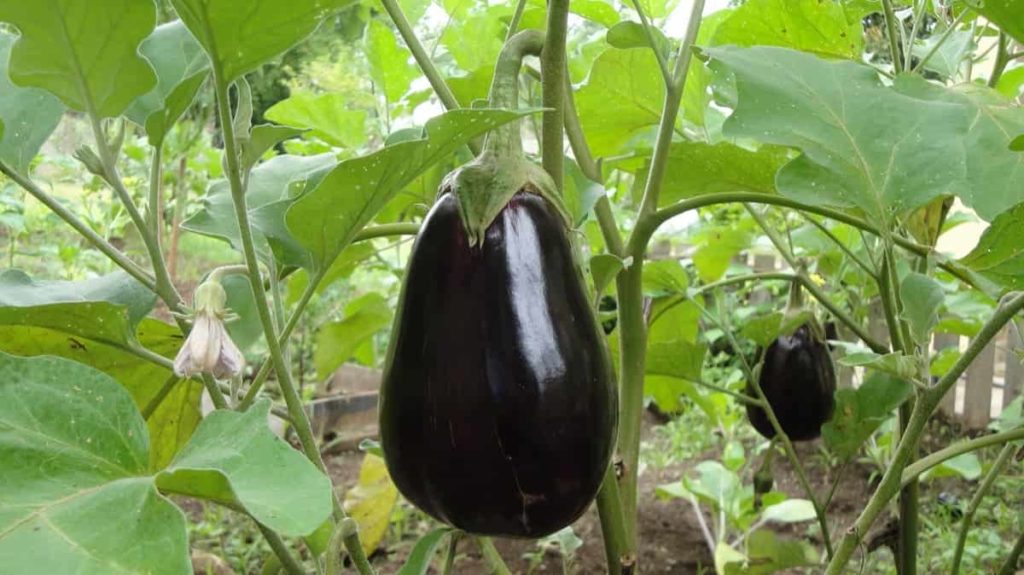
Best soil mix for Eggplant
Eggplants grow well in rich soil that is full of nutrients. You can enrich the soil using compost. Neglecting nutrients in the soil can result in Eggplant plants that do not produce too much fruit. You can prepare potting mix by combining soil/cocopeat/manure 1:1:1. Manures can be either cow dung or vermicompost, or home compost. This mix should include neem cake to protect the plant from root-related diseases. Prepare potting mix with 30% soil, 20% compost, 20% cocopeat, 20% sand, and 10% neem cake powder.
Soil recipe for Eggplant
A good, easy option is a mixture of two parts of soil and one part of sand. Soil provides the nutrients it needs, while sand controls moisture. Mix in a fixed release, pelleted fertilizer using instructions on the fertilizer label. Starting initially with balanced nitrogen, phosphorus, and potassium ratio is better. Reapply the fertilizer after 10 to12 weeks.
Soil composting for Eggplant
Compost improves drainage and provides soil fertility whose Eggplants need to start well. Once the plants start flowering, water the soil with liquid fertilizer on the base of each plant once a month. Homemade compost tea is made by soaking the compost in water for at least 24 hours, pressing the mixture, and diluting it with water until it resembles weak, light brown tea. Alternatively, use balanced liquid fertilizer and follow package instructions for quantity.
The addition of organic matter can benefit all kinds of soils. It helps light, sandy soils to keep moisture and nutrients better and wedges between heavy, clay soil particles to better their extract. Grass clippings, covering crops, leaves, manure, garden residues, or whatever you add can decompose (with the help of millions of small bacteria already in the soil) and turns into this critical component of all the good soil of the garden humus. You may also be feed mud, which helps aerate your soil and help increase your soil wealth by adding what is left of you.
Natural soil amendments for Eggplant
You can improve soil with soil amendments. You can improve heavy clay or sandy soil by adding organic materials like compost, manure, or leaf mold. The texture is a critical consideration when choosing an amendment. An amendment that is grainy and finely grained is essential for container mix. For gardens, a coarse-grained amendment can improve drainage and air. Soil work modifications through rototilling, raking, or double-digging.
Fertilizers can be chemically produced or come from natural sources such as plant matter, animal manures, or minerals found in rock. Aged manure, leaves, grass clippings, and compost can be obtained free of cost from their backyard or neighboring properties, but NPK analysis is not guaranteed. This material can be worked in soil or used as a mulch. You can apply powder, palette, or granules between rows or as side-dressing in soil based on the type of Eggplant.
In case you missed it: Eggplant Growing Tips, Ideas, Secrets, Techniques
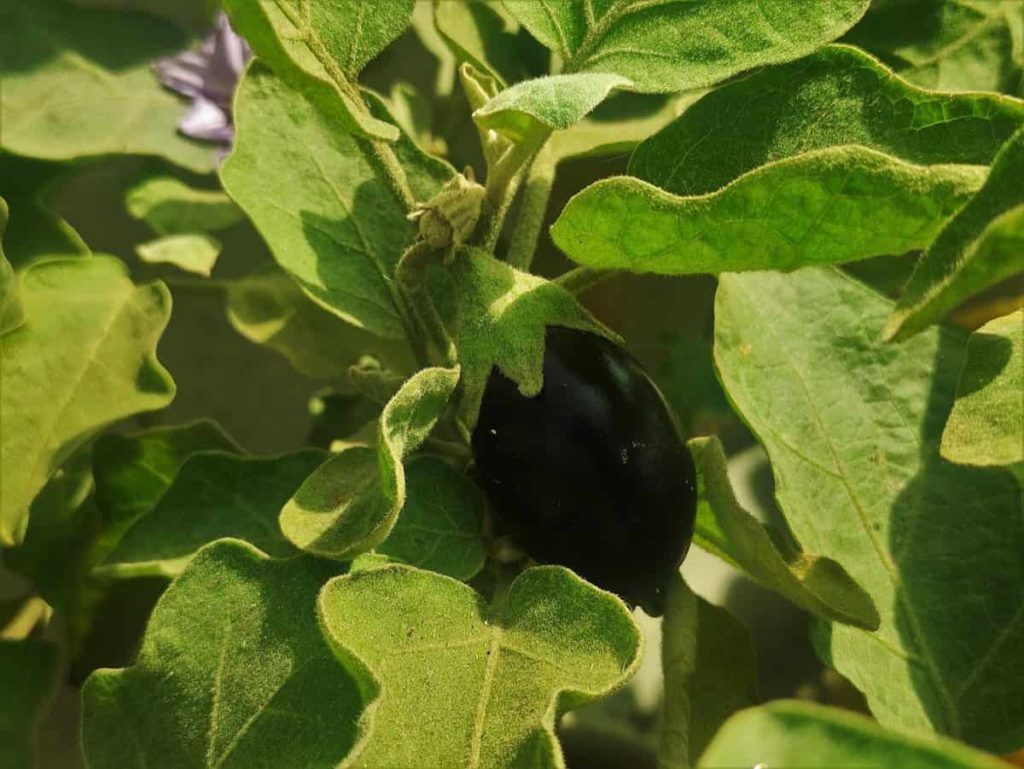
The fertilizer is applied in this way and should work in the dirt to prevent heavy rain from spraying fertilizer on the plant. Foliar feeding is an alternative to fertilizing the Eggplant because it can also absorb nutrients through its leaves. The Eggplants who are underperforming are the best candidates. Use commercial liquid fertilizer designed for foliar feeding or make your own with dilute compost tea. Apply this liquid as a spray early in the morning when the temperature cools.
What to do with soil when growing Eggplant
Different herbs can improve the taste of Eggplant and protect it from pests. Because it has a strong smell, Oregano can repel aphids, cabbage moths, and spider mites. It also attracts beneficial pests like bees and ladybugs. It would help if you planted Thyme to prevent garden moths from smelling it and protect your Eggplant from the aphides. French tarragon will remove the tarragon pests that would otherwise attack the Eggplant.
Many strong aromatic herbs will repel pest attacks and make great companions for Eggplant, including Rosemary, Chamomile, Lavender, Sage, Dill, Marjoram, and Catnip. When planting a Catnip with Eggplant, avoid planting it with Peas and Green Beans, as the Catnip negatively affects their growth and growth. Mints like Peppermint are suitable companion plant varieties to plant around Eggplant as they reduce the number of flea beetles. Just remember that if not controlled, all mints can become aggressive faster.
Flowers can also be beneficial companions for Eggplant. Marigolds attract many pollinators, and their aroma can prevent some harmful pests, such as flea beetles. Marigold, Nasturtium, Snapdragon, and Sunflower will prevent aphids, whiteflies, flea beetles, and ants by adding beauty to your garden. Amaranth also makes a great companion to Eggplant as their conditions continue to grow in the same way, but make sure they get enough space to grow and avoid casting a shade over each other.
Eggplant needs full sun for best growth and flowers. Growing Cabbage with Eggplant will attract flea beetle shaved cabbage, as they prefer the taste of leaves over Eggplant. Pole Beans and Bush Beans both take nitrogen from the air and add it to the soil; it is highly beneficial for Eggplant. It increases soil fertility. Planting Green Beans in the garden can repel Colorado potato beetles.
Colorado potato beetles can eat your Eggplant leaves and make them difficult to grow. Potato beetles can also become tolerant of insecticides, so plants that help prevent this pest can make your Eggplant crop more successful. Make sure your Green Beans don’t shade the Eggplant, which requires full sun, as the Pole Beans can be quite long. Do not plant Fennel near your Eggplant. Fennel prevents growth in many plants, including Eggplant.
In case you missed it: Growing Eggplant in Aquaponics (Baigan/Brinjal/Vankaya)
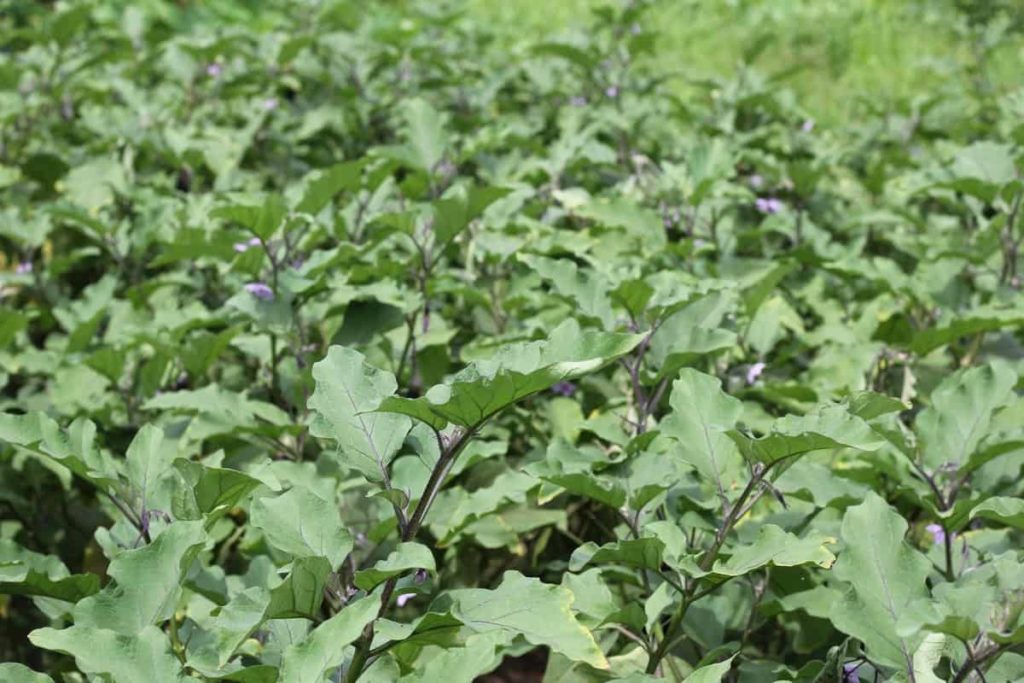
Geraniums can host diseases that also affect Eggplants, such as leaf blight and root rot, so it is better to avoid planting them in Eggplant. It would be best to avoid heavy feeding plants that will compete with Eggplant for nutrients. Corn and Eggplant require a lot of fertilizer. Corn is not particularly harmful to Eggplant, but you don’t want to eliminate soil near your Eggplant. Furthermore, avoid planting Eggplant near allelopathic trees, such as Black walnuts, which prevent growth and germination underneath it.
- Flower Garden Designs and Layouts for Beginners
- Planting and Spacing Techniques in Papaya: A Beginner’s Guide
- Growing Gold: Essential Techniques for Planting Pineapples
- How to Make Kalanchoe Plant Bushy: Home Remedies and Solutions
- 11 Reasons Why Your Gardenia is Not Blooming: Home Remedies and Solutions
- Eco Elegance: The Guide to Designing a Drought-Tolerant Landscape
- Gardening on a Slope: Strategies for Hillside Landscaping
- Nourish and Flourish: Top Organic Mulches for Thriving House Plants
- Everything You Want to Know about Indian Mogra Flower: Discover Uses and Growing
- Green Thumb Success: Expert Tips for Cultivating Greenhouse Pumpkins All Year Round
- Maximize Growth & Flavor: The Ultimate Guide to Companion Planting in Herb Gardens
- How to Control Rhododendron Problems Naturally: Home Remedies and Organic Ways to Fix Them
- Natural Magic: The Remarkable Benefits of Cinnamon for Plants
- Best Steps to Revive Dying Tulip with Natural and Organic Treatment
- 10 Reasons Why Your Angel Trumpet is Not Blooming: Remedies and Treatment
- How to Fix Periwinkle Leaf and Flower-Related Problems: Natural Remedies and Solutions
- How to Fix Zinnias Leaf and Flower Problems: Discover Natural and Home Remedies
- Organic Steps to Induce Lemon Tree Flowers: A Comprehensive Guide
- Bloom Booster: Crafting the Perfect Homemade Bougainvillea Fertilizer
- Optimizing Growth: A Guide to Applying NPK Fertilizer for Potted Plants
- 10 Best Homemade Fertilizers for Rubber Plant: DIY Recipes and Application Method
- How to Boost Female Pumpkin Flowers: Effective Steps for More Flowers and High Yields
- Transform Your Indoor Garden: Top Benefits of Pink Salt for Houseplants
- 10 Best Homemade Fertilizers for Peacock Plants (Calathea): Easy DIY Guide
- Unlock Blooms: 9 Reasons Why Your Potted Chrysanthemum is Not Blooming
- 8 Reasons Why Your Potted Hibiscus is Not Blooming: Fix it with Simple Solutions
- Unlock Blooms: 9 Key Reasons Your Potted Frangipani Won’t Flower
- 10 Reasons Why Is My Ice Plant Not Blooming: Remedies and Treatment
- 10 Reasons Why My Potted Hydrangea Not Blooming: Treatment and Remedies
- 10 Reasons Why is My Wisteria Not Blooming: Remedies and Treatment
- 10 Reasons Why is My Goldfish Plant Not Blooming: Remedies and Treatment
- Maximize Your Space: Ultimate Guide to Balcony Gardening with Grow Bags
- 10 Reasons Why Your Iris is Not Blooming: Remedies and Treatment
- 10 Reasons Why Your Anthurium Plant is Not Blooming: Treatment and Remedies
- 10 Reasons Why Your Aquaponic Plants Are Not Flowering: Remedies and Treatment
- 10 Reasons Why Your Agapanthus is Not Flowering: Remedies and Treatment